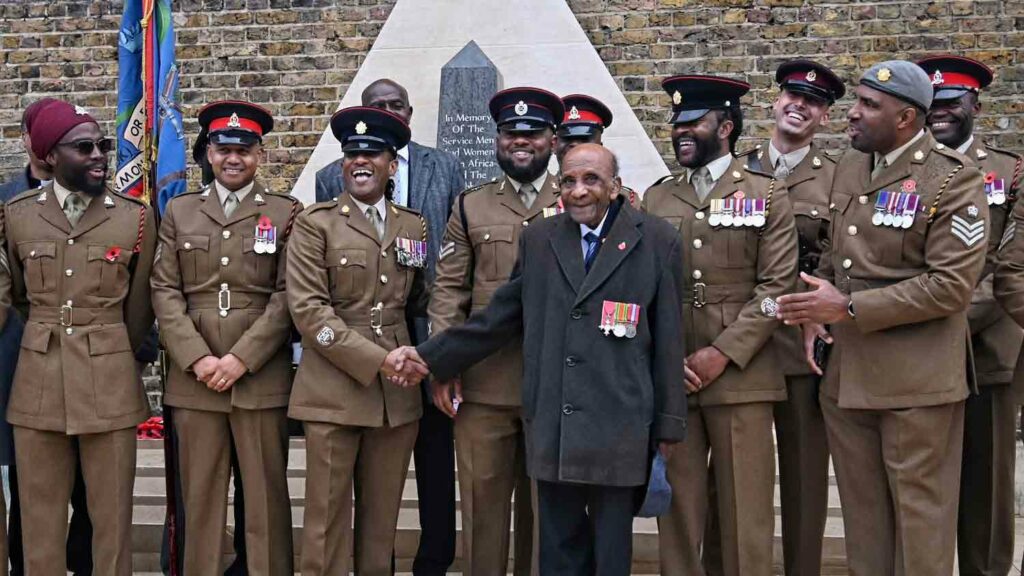
Unity and pride were once again the themes of this year’s Remembrance Sunday events in Brixton’s Windrush Square.
They saw representatives of major religions come together to call for peace and celebration of the 99th birthday of RAF veteran Neil Flanigan.
The seventh peace parade at the African and Caribbean War Memorial on Windrush on Remembrance Day organised by the Nubian Jak Community Trust was opened with a traditional libation ceremony performed by Professor Gus John.
“We honour the spirit of all those who made the ultimate sacrifice in imperial wars waged in the name of freedom even when they themselves were kept and remained in bondage,” he said.
Calling for respect for the right to life and to liberty, he said the absence of these rights is “the surest guarantee of future wars”.
As well as remembering those who had died in earlier wars, he also honoured the spirits of the recent dead in Palestine and Israel.
Nairobi Thompson introduced prayers from Rabbi Herschel Gluck, OBE; Umar Mahmood; and Bishop Michael Steele.
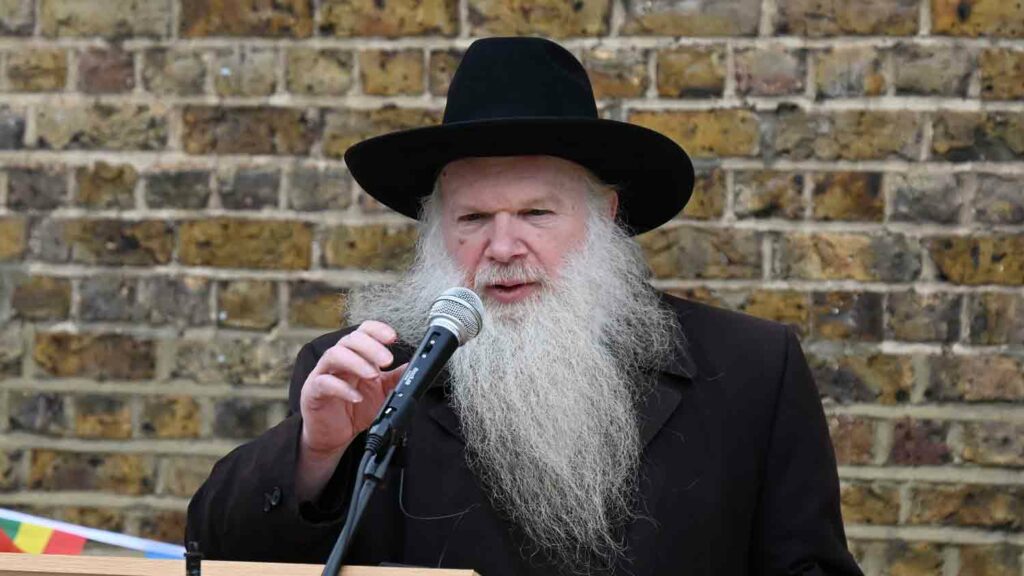
Rabbi Gluck said each human being needs to be treated as befits someone who is created in God’s image. “Today we pray that all of us together see the image of God in each other, whoever the other may be, and realise that we are not other, that we are really one, because we are all one people under one God who created each and every one of us.”
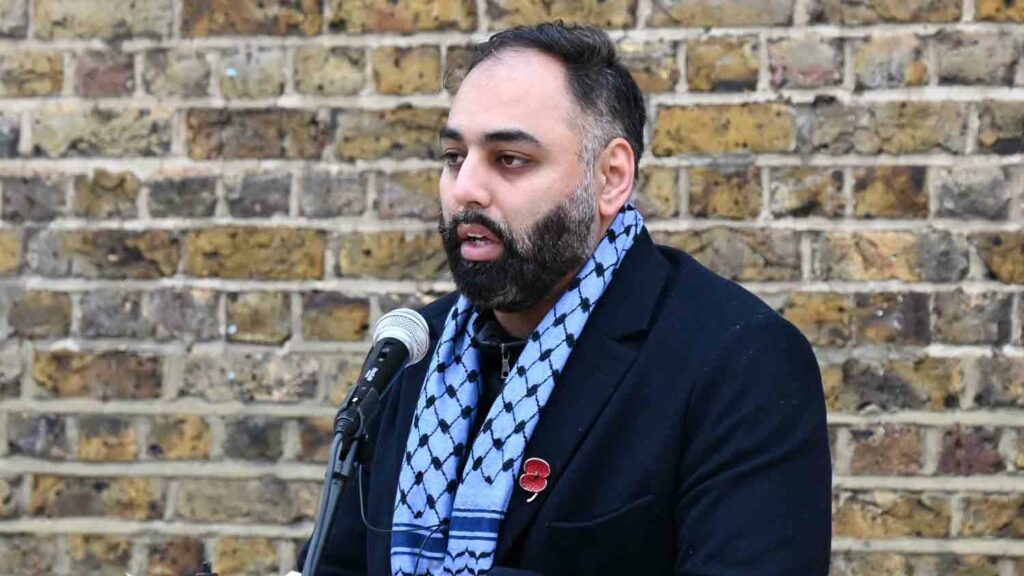
Umar Mahmood quoted from the Holy Quran: “O humanity! Indeed, We created you from a male and a female, and made you into peoples and tribes so that you may know one another. Surely the most noble of you in the sight of Allah is the most righteous among you. Allah is truly All-Knowing, All-Aware.”
He asked what better events there were than Armistice Daty and Remembrance Sunday “to remind us of the need for peace and the call for a ceasefire which impacts every part of our world, including this borough of Lambeth.”
He said the events of recent days showed that if faith communities did not stand together, “we will only see far right extremists attack us all. Whether you’re Muslim or Christian or Jewish or Black or white or Asian, Arab makes no difference. They don’t like any of us.”
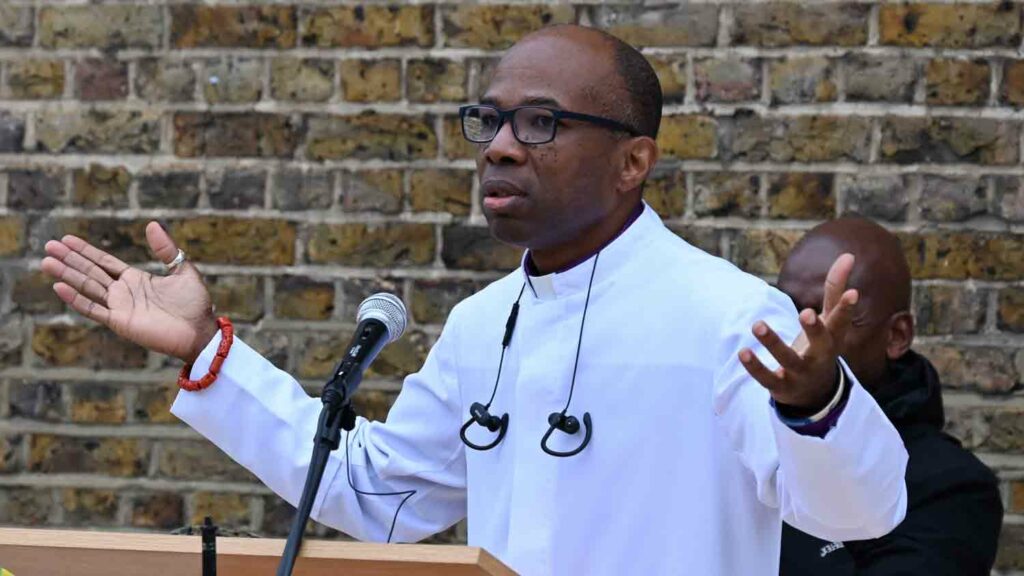
Bishop Steele asked his audience to hold the hand of the person next to you.
”You didn’t choose your neighbour, did you? But if you want peace, you must stand side by side with your neighbour,” he said.
Bishop Steele then called on the earlier speakers to join him, and on his audience to say “It’s time for peace”.
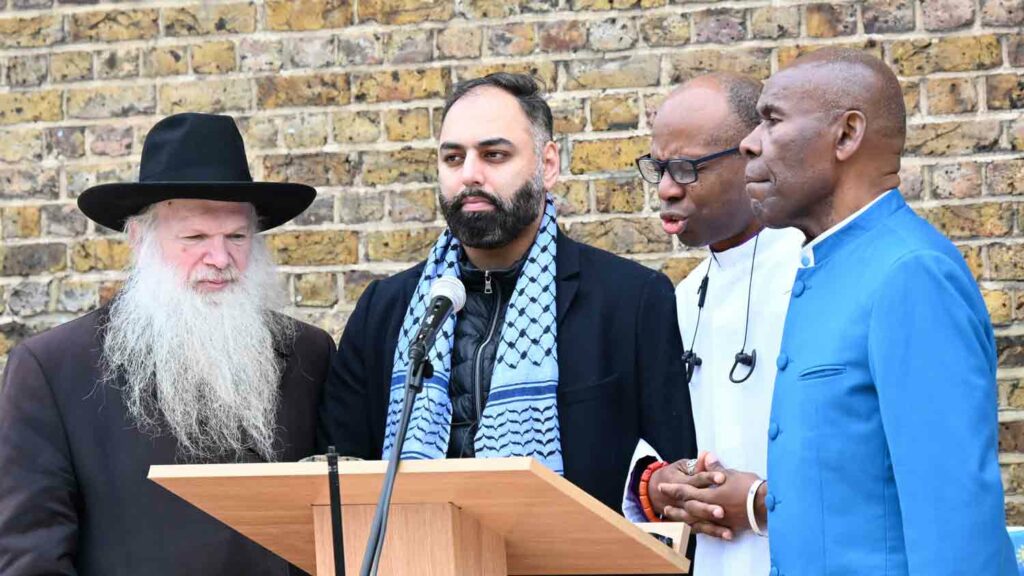
The three MPs who together represent parts of Brixton each addressed the event.
Helen Hayes who represents the Dulwich and West Norwood constituency, which includes Windrush Square, said it is important that when we are remembering and retelling, we remember and retell the whole story and that we acknowledge with gratitude everyone who played a part.
“That is what we are doing this afternoon here on Windrush Square, remembering the sacrifice and service of men and women from Africa, from the Caribbean, and the wider Commonwealth whose contribution has all too often been overlooked and written out of history and whose service was all the more exceptional because of the additional challenges and injustices they faced in relation to racism and discrimination and the role of Britain in those countries.”
She said “we must remember that our history of migration extends for millennia. It is part of our national story and it is part of our DNA and that many of the Windrush passengers were coming back to the UK, having already served in the Second World War.
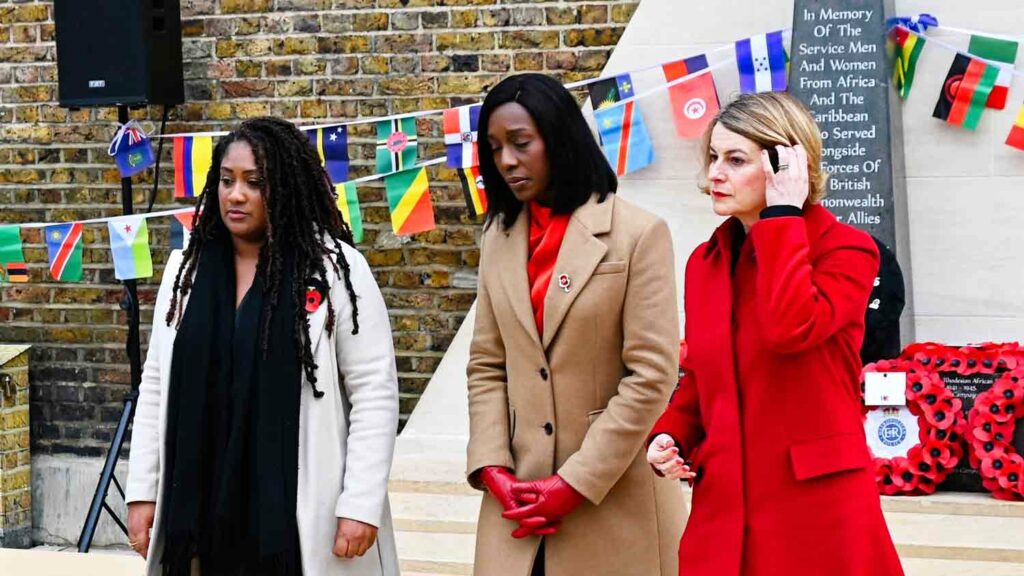
Bell Ribeiro-Addy, who represents the Streatham constituency, said “If we stand resolute in our pursuit of peace, we must also be resolute in our pursuit of equality because often justice and equality go hand in hand. And where there is no justice, there will be no peace.
“Never again should we allow the scourge of war and destruction to ravage the world and take lives needlessly in the wake of conflict. So here we stand, united in memory of the fallen from all wars and let us pledge ourselves the noble cause of forging a world where peace, justice, and equality reign supreme and make the memory of the fallen that we honour here today an enduring beacon of our commitment to a better world.?
Florence Eshalomi, who represents the Vauxhall constituency, said: “We stand united today, not afraid to call out some of the injustices still happening. We stand united today not afraid to call out the racism that still exists. We stand united today not afraid to call out the hate that is being perpetrated by some of the highest levels of our government.”
She said she had grown up in Brixton and, when she went to school just down the road from Windrush Square, the African Caribbean War Memorial was not there. “I feel blessed to know that my children can now learn about the servicemen from the Caribbean, from Africa and the Commonwealth, who gave their lives, and who continue to serve our country with distinction.”
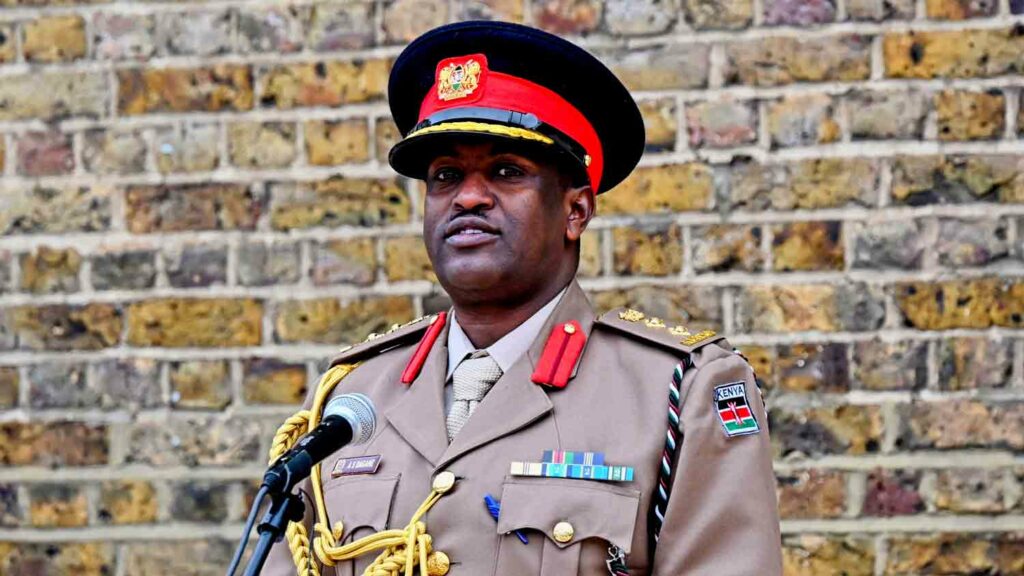
Colonel Abdirizak S. Dagane, defence adviser at the Kenya high commission in London, told of the contribution of African soldiers through a brief history of the King’s African Rifles regiment founded in 1902 from units initially started in the late 1880s in Kenya, Malawi, Somalia, and Uganda to establish borders and to stop slave traders. Its members fought in both world wars and many others.
The 99th birthday of RAF veteran Neil Flanigan, MBE, a frequent attender at Windrush Square Remembrance Sunday events, saw him cut the string on balloons for his birthday.
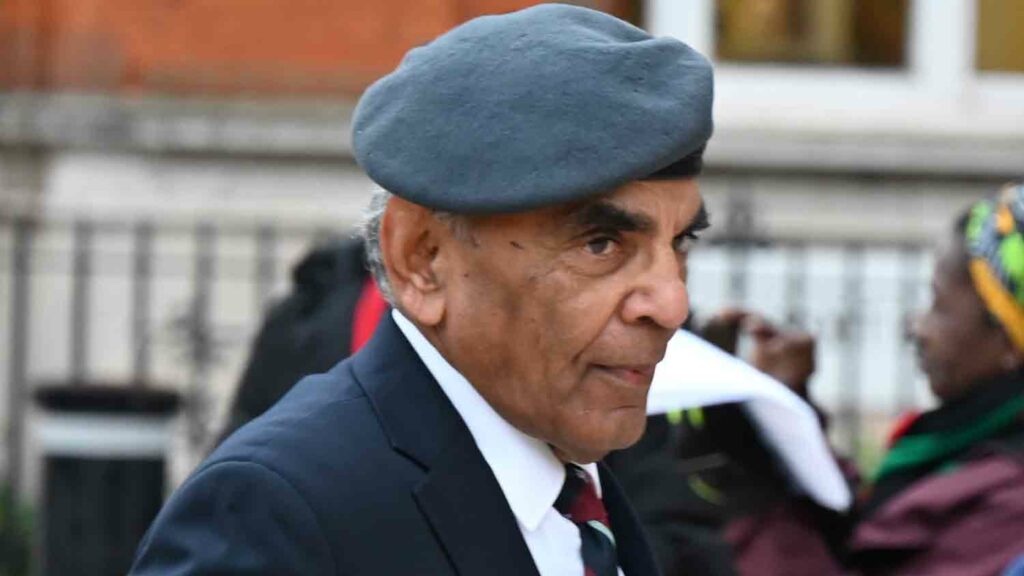
Peter Ramrayka, chair of the City and Central London branch of the Royal Air Force Association, read If We Must Die, written in 1919 by Black poet Claude McKay in response racist violence in the USA at the time. The poem is thought to have later inspired Winston Churchill.
In his keynote address, Major Kidane Cousland, MBE, said has served in the British Army for 15 years, since the age of 16,
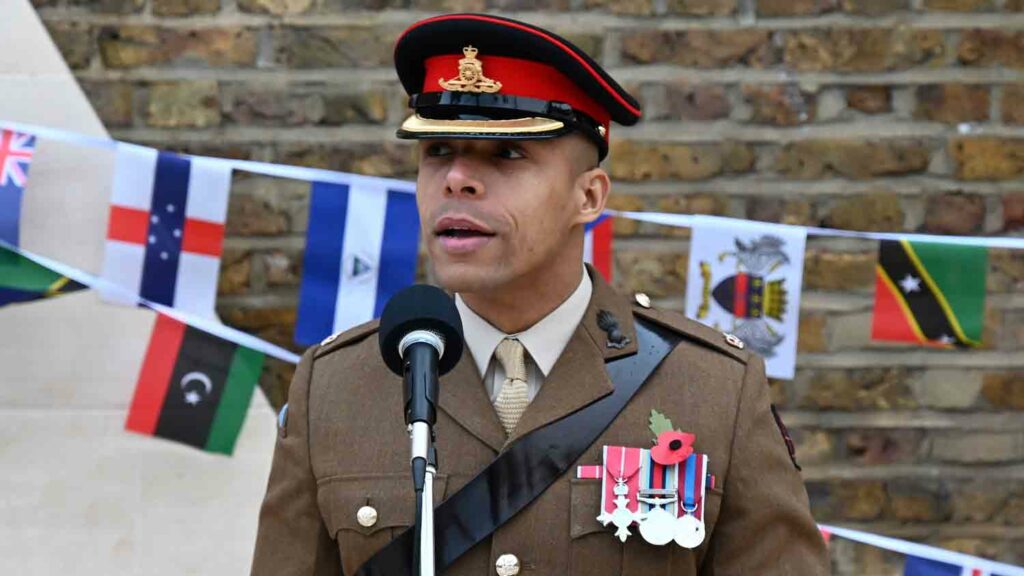
“I have fought and I know the sacrifice this monument behind us represents, like you,” he said.
“I come here to remember those who gave the ultimate sacrifice for the freedoms we cherish. The millions of men and women from every colour and creed who served in World War II showed us that, no matter how dark the time gets, united we can conquer anything.
“Their service made the social tapestry that we see in Britain today deeper and richer for their sacrifice.”
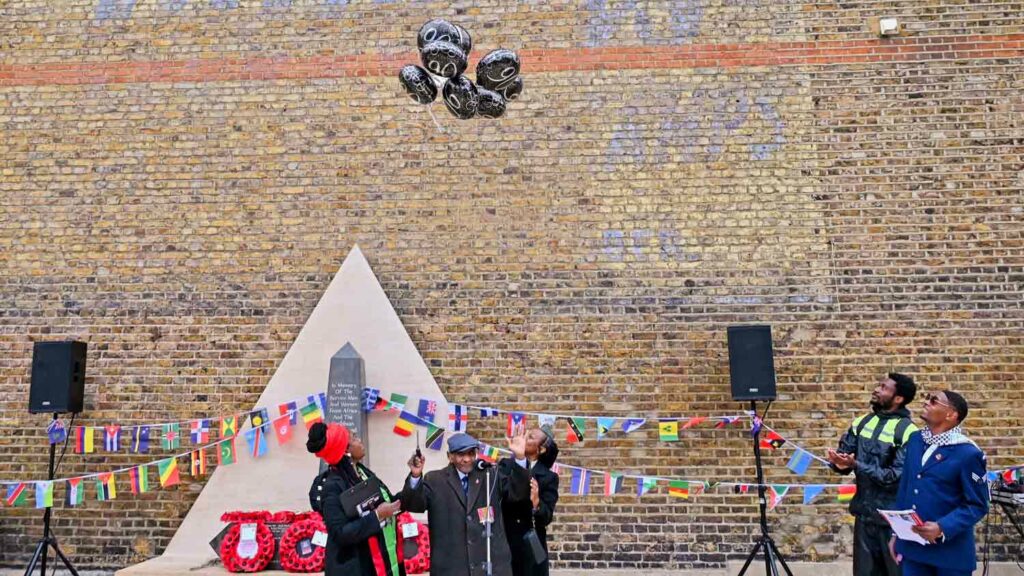
Before the event continued with speeches in Brixton library, calypsonian Alexander D Great performed his song Remember Our Heroes.
West Indian Association of Service Personnel event
Earlier, the Clapham-based West Indian Association of Service Personnel (WASP) conducted a Remembrance Sunday service in Windrush Square.
Donatus Anyanwu, Lambeth council cabinet member for stronger communities, leisure and sports, said: “Let’s look at each other and say, you and I will remember together, but going forward, we will fight for what we fought for, which is humanity, to have peace, to live in unity.”
Reverend Michael King, the chaplain of WASP, said: “the truth is now being told; 85% of the men on the Windrush were ex-RAF servicemen who served in the second World war.
“Not economic migrants, but war heroes. Veterans answering the call again a second time.”
Make no mistake, he said, “we’re in a war. You might think you’re in a time of peace, but we’re in a war. It’s a spiritual war. Evil is rampant and attempting to take this world by storm.
“But I’m here to tell you there’s an opposing force and that’s good. And that’s God’s love through Christ Jesus.”
He displayed and then passed round the audience in Windrush Square a booklet – The Gospel According to John – that was given to every British solider on active service in the First World war.

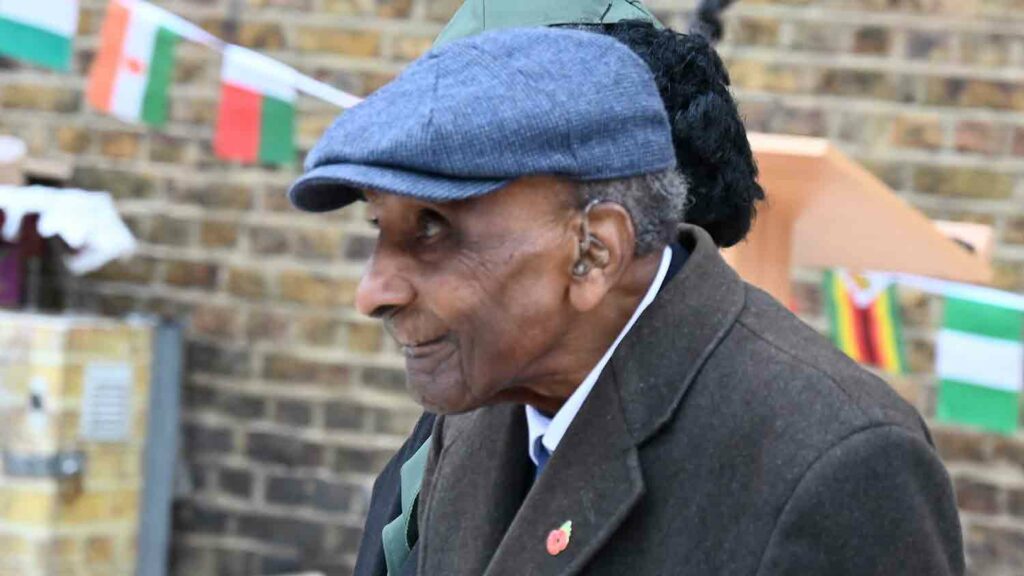
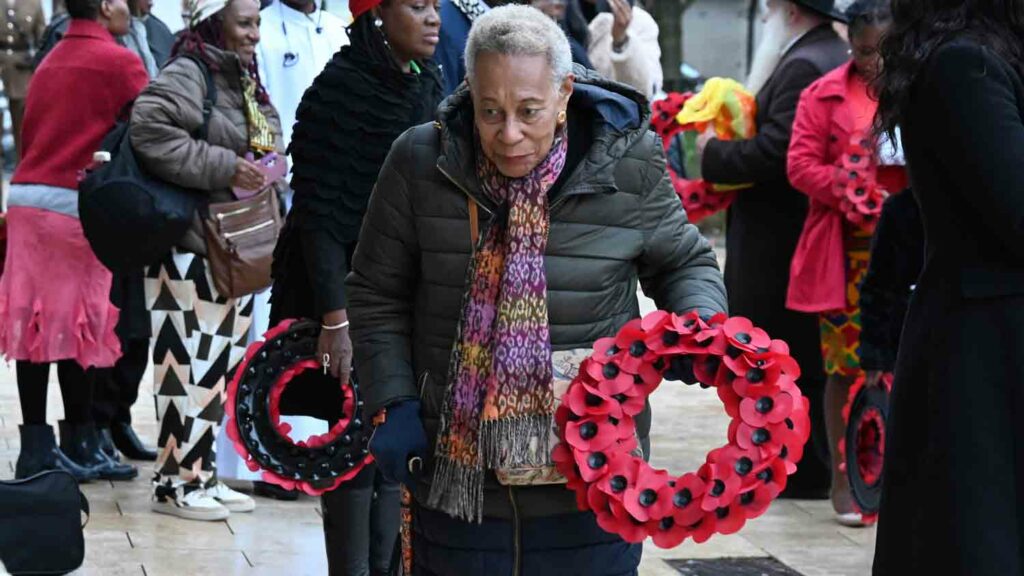
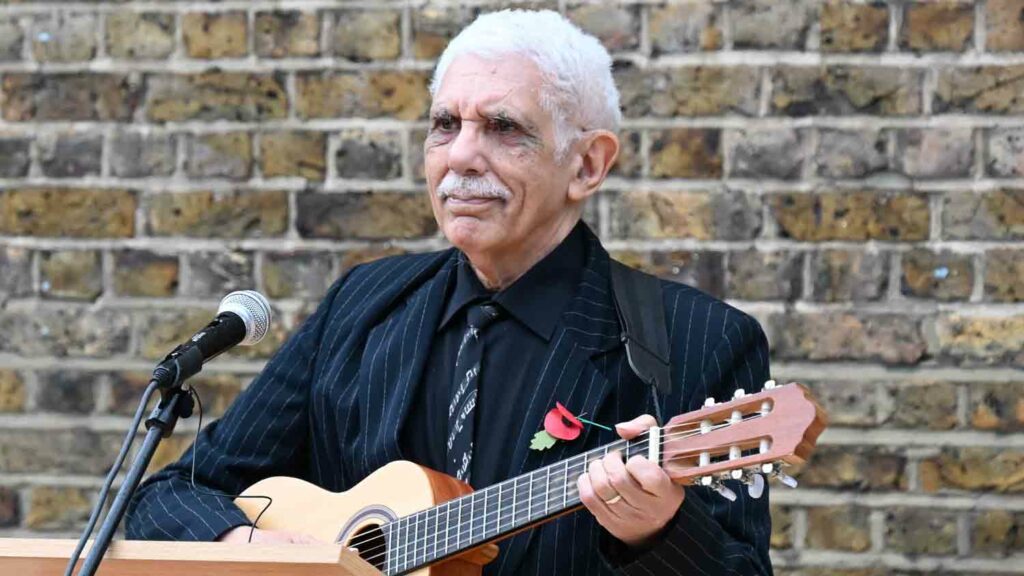
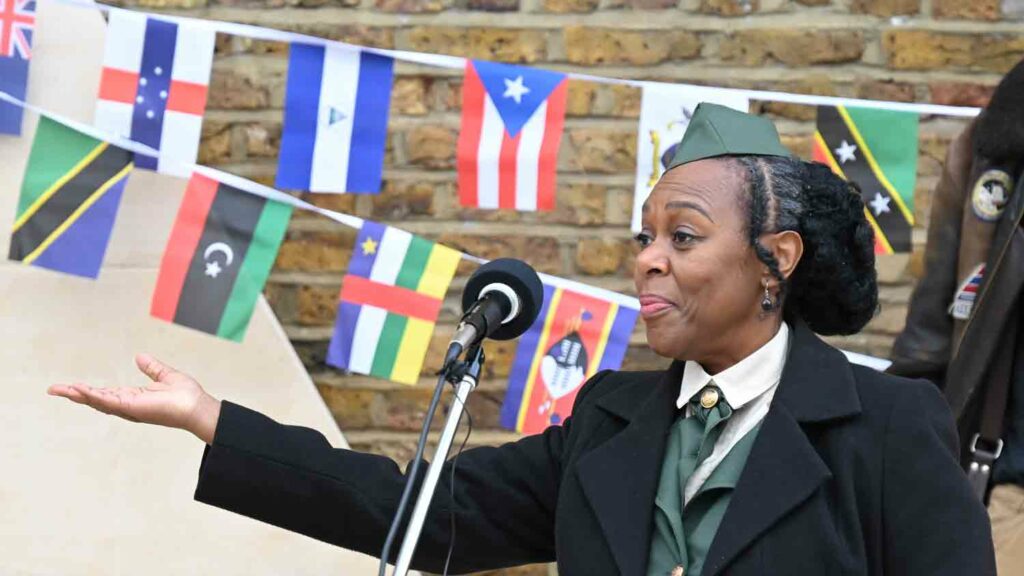
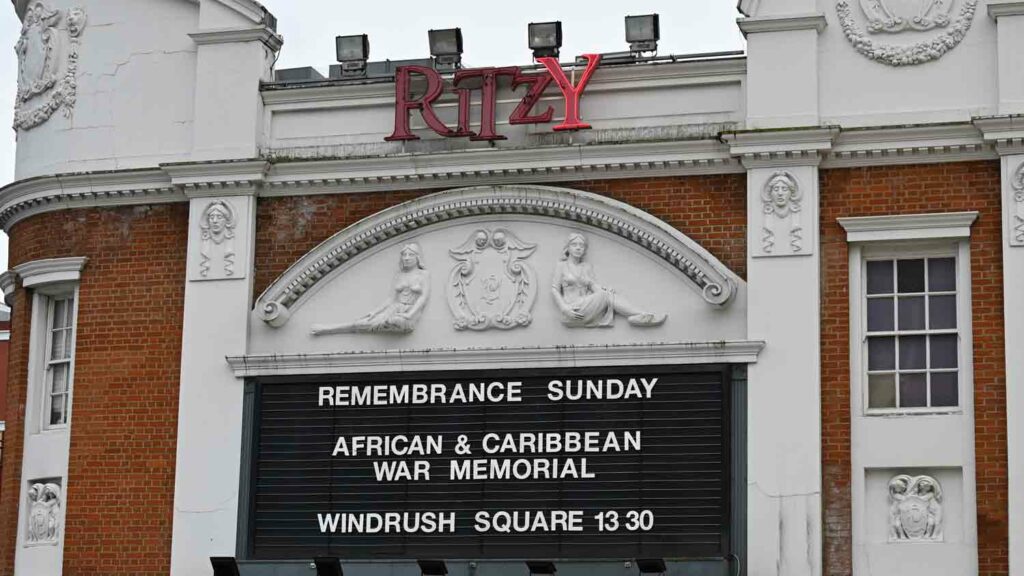
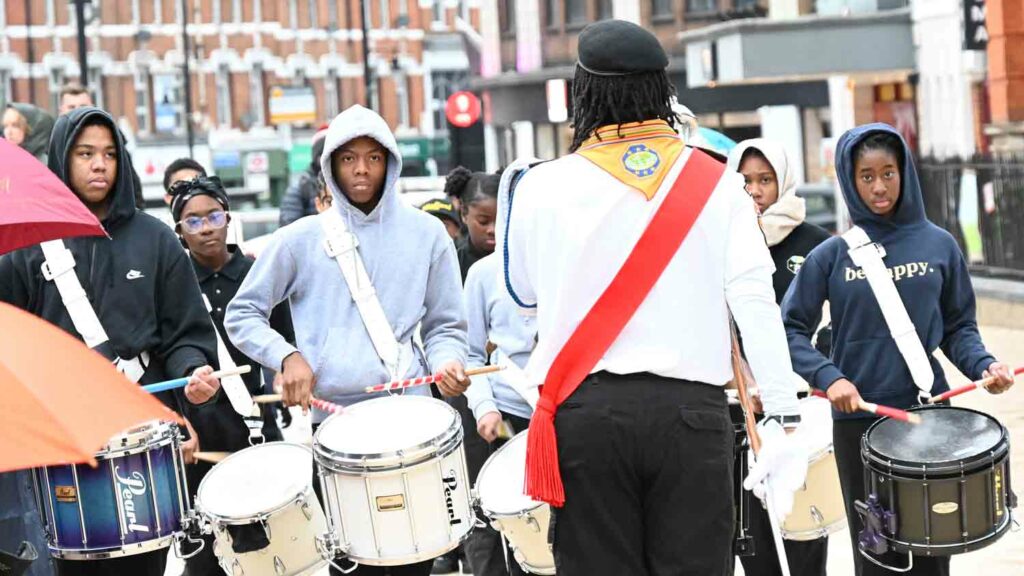
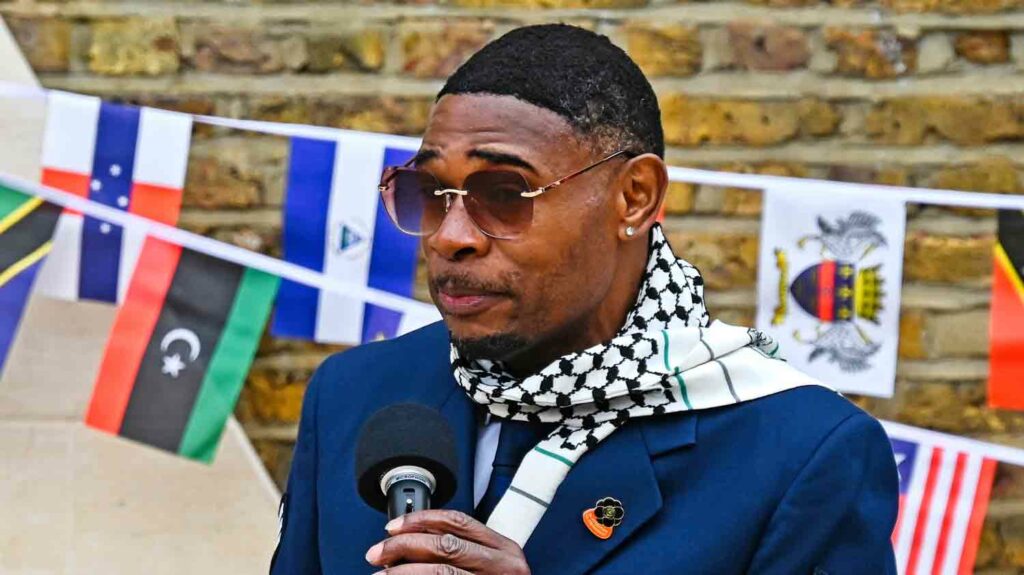
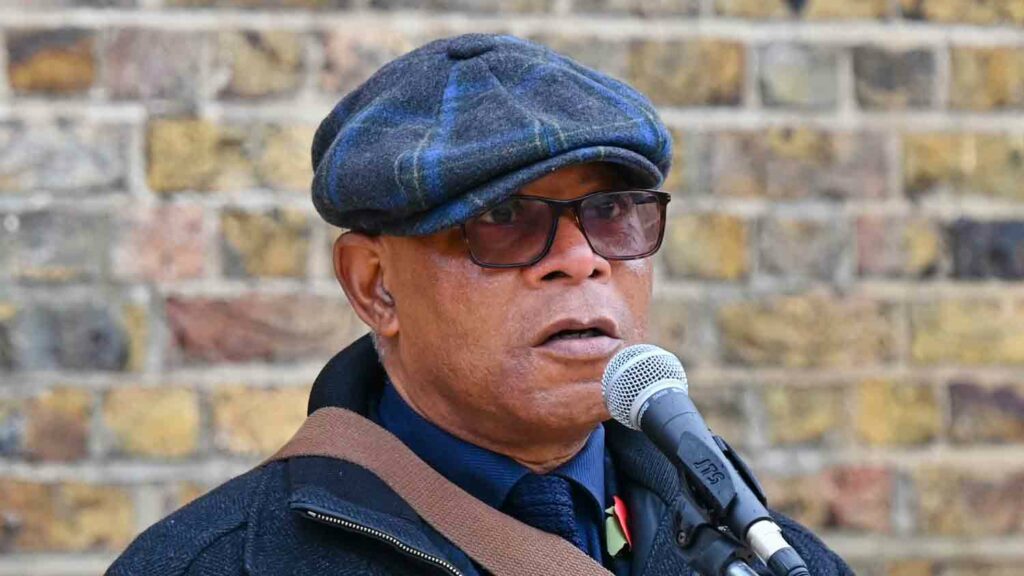
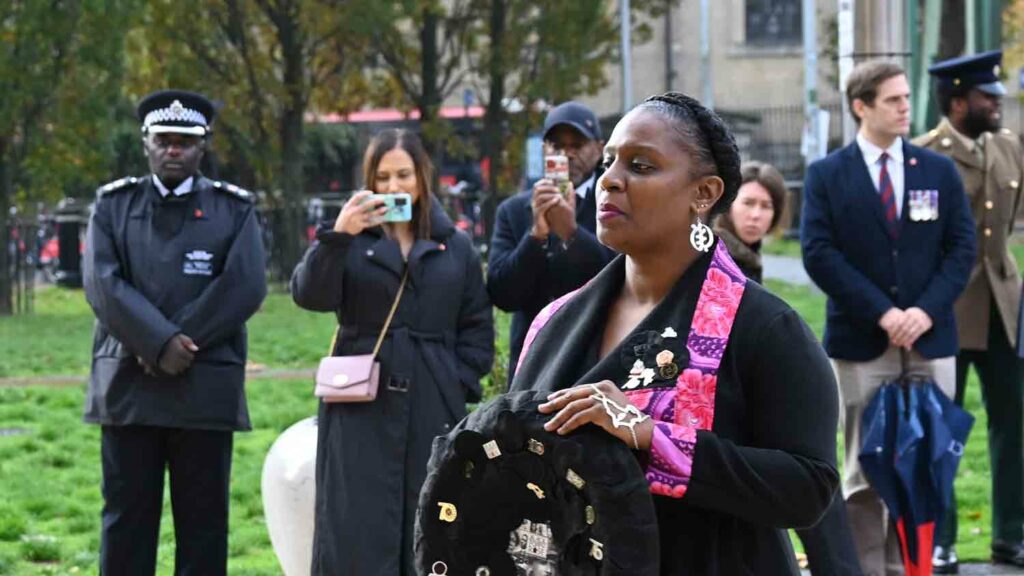
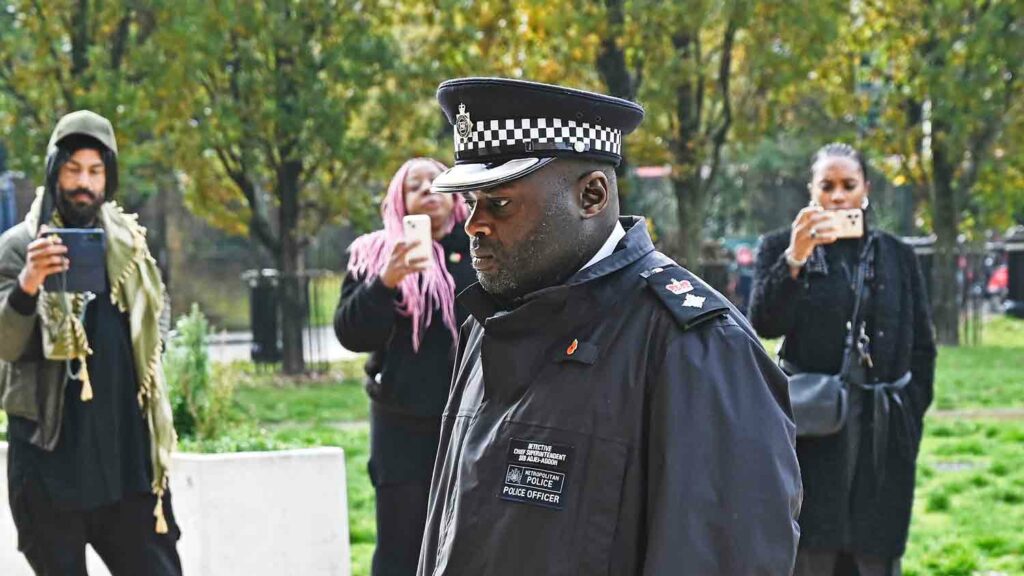
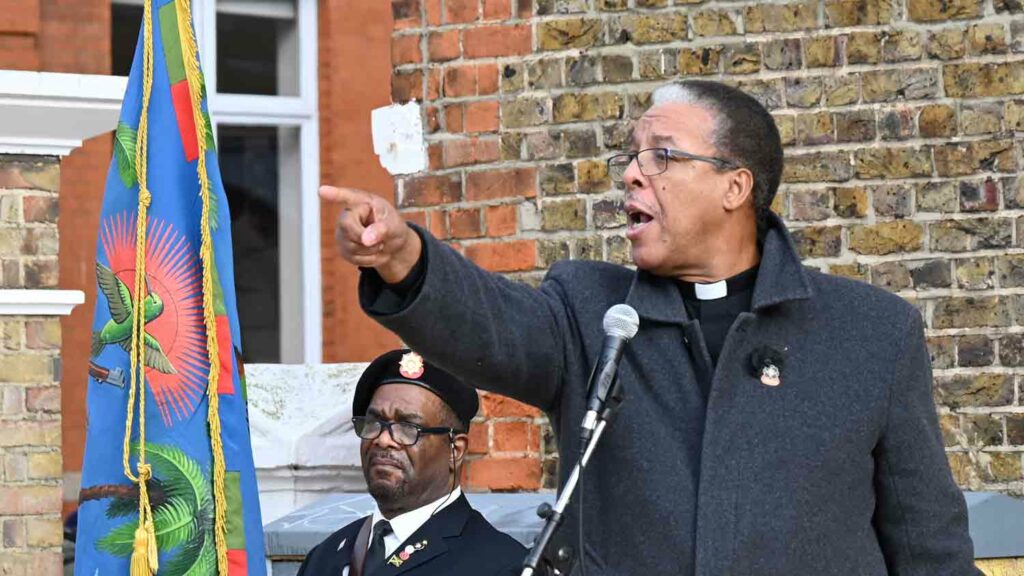
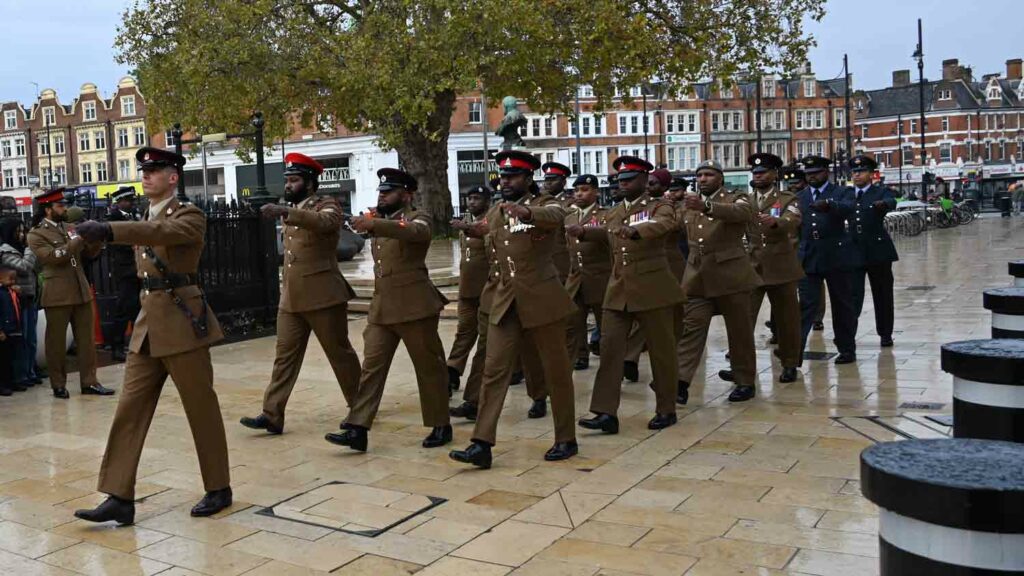
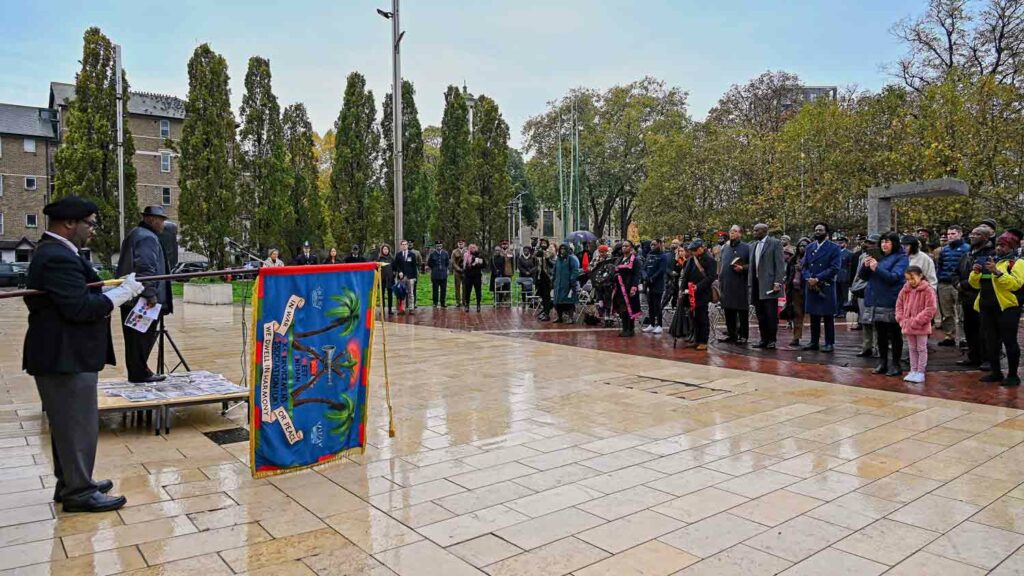
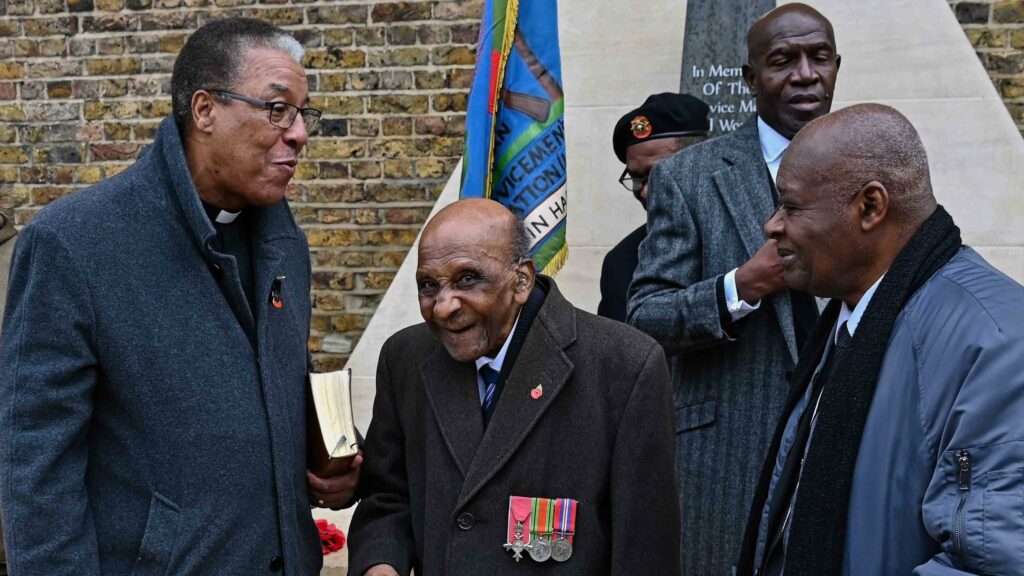
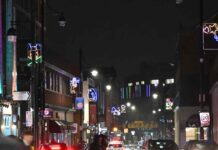
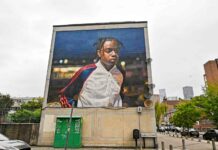
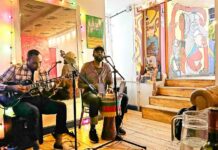
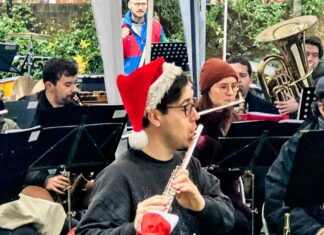




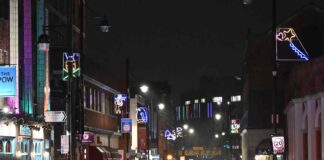








Thank you for this excellent report, with pictures and video, of this well organised and fully integrated event honouring our heroes